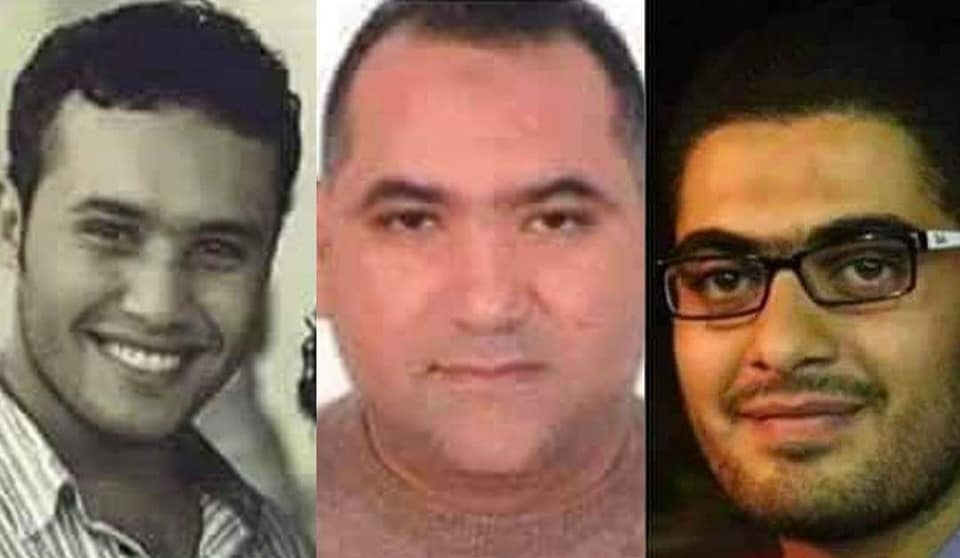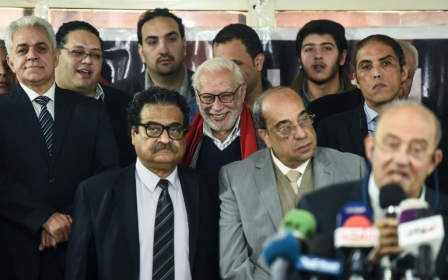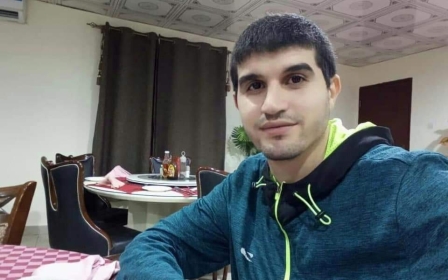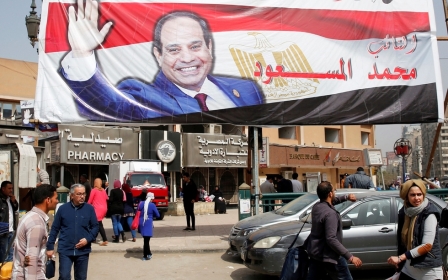Egypt executes three political prisoners after appeal rejected

Egyptian authorities executed three political prisoners on Thursday, one year after they were sentenced to death on charges of killing the son of a judge, according to local rights activists.
According to Ahmed Attar, an Egyptian rights defender based in London, families of three men were informed today by a morgue in Alexandria that they had been executed by hanging and that their bodies were ready for burial.
Another Egyptian rights activist who knew the three men said they were all members of the Muslim Brotherhood and had taken part in protests opposing the military coup led by President Abdel Fattah el-Sisi against his predecessor Mohamed Morsi, who hailed from the group.
The Brotherhood has been labelled a terrorist group by Egypt following Sisi’s election, although the group denies any involvement in violence.
New MEE newsletter: Jerusalem Dispatch
Sign up to get the latest insights and analysis on Israel-Palestine, alongside Turkey Unpacked and other MEE newsletters
The three men were university students Ahmed Maher Hindawi and Almotaz Ghanem, and IT company owner Abdel Hamid Metwalli.
The case, known in Egyptian media as “The son of the judge”, dates back to September 2014, when masked gunmen shot dead Mohamed el-Morelli, the 26-year-old son of the vice president of the Cairo appeals court, Judge Mahmoud el-Morelli, in the Nile Delta city of Mansoura.
Confession under torture
Following the murder, security forces rounded up a number of young men from Mansoura, three of whom were later sentenced to death after confessing - reportedly under torture - that they had committed the crime.
Ghanem, who was arrested on 11 October 2014 and forcibly disappeared for 20 days, wrote in a leaked letter that he was subjected to torture by beating and electrocution after he denied committing the crime. According to the letter, he was forced to confess that he took part in the murder and to name two other culprits he did not know.
"The letter indicates that the men were tortured by electric shock and beatings in detention," Human Rights Watch said in a statement on Thursday.
HRW's deputy Middle East and North Africa director, Michael Page, condemned Egyptian authorities for committing "a glaring injustice by executing three men who apparently gave ‘confessions’ extracted through electric shock and other torture".
He urged the Sisi government to "immediately impose a moratorium on executions, which magnify the cruelty of unfair trials".
Egyptian civil and military courts have sentenced more than 1,400 people to death since Sisi became president in 2014.
The sentences, according to Amnesty International, followed “grossly unfair trials” that relied on confessions extracted under torture. Many of those sentenced to death have been either members of the Muslim Brotherhood or critics of the Sisi government.
Middle East Eye delivers independent and unrivalled coverage and analysis of the Middle East, North Africa and beyond. To learn more about republishing this content and the associated fees, please fill out this form. More about MEE can be found here.




